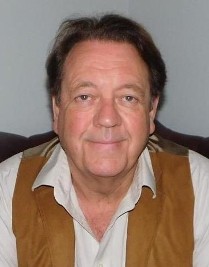












 -
-
Smart Pharmaceutical Consulting – Helping Small to Large Pharmaceutical and Biotech Companies Advance Process-
 Nigel Smart, PhD
Nigel Smart, PhD
Founder
Smart Pharmaceutical Consulting
http://www.smartpharmaconsulting.com
Interview conducted by:
Lynn Fosse, Senior Editor
CEOCFO Magazine
Published – May 20, 2024
CEOCFO: Dr. Smart, would you tell us about the overall focus behind Smart Pharma?
Dr. Smart: Smart Pharmaceutical Consulting is a boutique specialist pharmaceutical biotech consulting firm. Our goal is to add value in terms of advancing process-
We’ve worked with large and small companies, a lot of startups, and some big companies. I think our sweet spot is when somebody is looking for a creative advantage and that is where we can often add value.
CEOCFO: When a company turns to you for services what might you look at that less knowledgeable or thorough people might not recognize as important?
Dr. Smart: I like to look for the non-
We like to bring people into an early discussion even though that may involve participants that don’t have an obvious technical background to develop a solution to the problem. They may not be your classical scientists and engineers that one would involve remediating a problem for example.
Why do we do that?
Because over the years through experience, the wisdom that we have gained has taught us that when you bring somebody in to look at something that is not classical in terms of the way you design the process layout, or design the equipment, or organize the laboratory for example, they ask the standard critical questions related to why you are doing we are something.
I don’t want that because it limits the approach and leads one down the same track that others will journey. This does not provide you with the competitive edge.
Like other areas in industry, we have a lot of preconceptions about how you should do things so this can stifle creativity and that’s not what we want. This can extend to simple things like how you organize your laboratory or build your production supply chain. Where we are dealing with Regulatory issues this does require discipline and standardization, but it does not neutralize our potential to be imaginative in our thinking about solutions.
In terms of the examples, I am using here, although the overall general principles are correct, applying just these without a new angle will not give you something different and it’s not going to give you that efficiency advantage or maybe the organizational advantage. Moreover, this conventional approach is not going to give you that person-
Inevitably where you have different departments interacting in a space, you have that departmental separation which fosters the creation of walls or silos that don’t encourage efficiency, productivity or quality compliance.
When I put our teams together, I like to approach things from the viewpoint of what do we know and what don’t we know.
We will chalk off the things that we have seen before. We find out how we can solve those problems as low-
One of the stories that I often talk about is that we have seen this issue before, but it has come up in a different color raincoat.
What do I mean by that?
I like to tell stories; I think it helps people conceptualize where we are coming from. You see a problem and it shows up in a grey raincoat, another time you will see a related type of problem but because it shows up in a brown raincoat it confuses you, so you try to overdesign something or you overlook the obvious, or you do not see a new angle on how you might overcome a particular problem.
In simplistic terms, a lot of people see a problem and they only want to address it head on rather than from several angles. I like to move to the side and see what else we can see.
Our goal is always to come up with at least three options for solutions to the problems we are attempting to solve.
CEOCFO: Was this always your approach or was there a time you realized you could borrow from other industries and other ideas? When did you know this was the method that is best for you and your clients?
Dr. Smart: For me this concept has always been early on in terms of process design and equipment design for example. We find that you are looking at fairly standardized concepts and the way that these are always being applied. In other words, this is how you run it and you can play around with a few things but then you look at the characteristics that we are trying to find solutions for. This is all very standardized.
Let’s consider an example associated with cultivating mammalian cells that goes back forty years.
We knew that they were fragile, so we were looking for methodologies that were low shear in terms of their operations, because standard microbial fermenters imparted too much shear which would destroy the cells.
We ended up borrowing from work that was done in the single cell protein & alcohol industry using yeast. We cultivated cells in systems that were intrinsically low-
Looking at these properties you come up with what were called, gas lift fermenters at that time. Back in 1981, I co-
Things have since changed because we know more about the cells which have been selected to be more robust, making modified conventional bioreactors available as well as disposable bag technologies which provide us with many options.
So, as you can see, we can freely borrow design concepts from another industry or a different area of the same industry and then apply them with great affect.
Through my PhD and post-
That philosophy has been very much ingrained in my background. What I have tried to do over the years through my corporate and consulting careers is to impart that type of question, to be curious and ask the question, "Is this the only way we can do it or is there a parallel situation somewhere albeit maybe not in our industry that we could borrow?"
Another good example, early in my career relates to making an antibody product that was a conjugate. The conjugate-
The reason why this was so brilliant was it was like a shark, because once it bonded with the antibody it would never let go. That was great because the majority of technologies at that time, would fall apart once it was injected into the body. This would result in radioactivity being released into the body rather than targeted at the tumor that the antibody was attached too.
The problem was, to make it we needed high purity water, better than WFI. Therefore, we looked into what they were doing in other industries, and we chose to use electronic E-
We were always inquiring and being curious, always asking if this gave us a competitive advantage. I am big on process integration and that type of thing. Anything that can bring different ideas to the for as well as breaking down group silos should be encouraged. I am all for these options.
CEOCFO: There are so many new ideas in all fields, how do you keep up and recognize where you might look when you are trying to craft a solution?
Dr. Smart: That is a good question. I think you read a lot and talk a lot with folks in the industry. You attend industry conventions and see the technology that is emerging constantly. You make notes of what is interesting because there might be a use for that down the line. You bank that in your memory bank. You make a mental note and realize you do not know where it is going to fit right now.
You know that you need a solution to a particular technical problem, and it is not around. By collecting and building a database of useful information and techniques, if you have had a career over twenty or forty years like I have, you start to see patterns and realize this is an area where this type of technology might be applicable. If there is something out there off the shelf that you can modify that could be really helpful. You can speak to a manufacturer, or a supplier and you can ask them if they have thought about making a particular component because if they make it given this issue, then maybe there will be a market for them, and it solves their aspirations too.
It is very much about being active in the field, staying on top of things being curious, and asking a lot of questions but making physical and mental notes about what some of the issues are that are emerging and then trying to conjure up the types of ideas that will solve the problems. We then will sit down and kick things around. For example, are we going to build a car the same way GM has built it or are we going to do it differently? If you listen to conversations with Elon Musk, he sits down and asks similar questions. We identify strongly with his ideas. If he is taking things away, he might ask if he needs it, and the answer may be no. I think we have to be more critical of things like that. You have to be brave enough to say we do not need this anymore.
CEOCFO: The concept of leadership is important to you; your book, Unexpected Leadership, coming out about soon. Why the interest?
Dr. Smart: Fundamentally there is a misconception. If you listen to some of the polls there is only 10% of the population that are capable of being leaders. I think it is more than 80% to 90% that can be, provided we provide the right examples and training and have the right philosophies in place. I think you have to have people that want to grow and want to step up. A lot of the time people do not have the opportunity to step up. All they have been told is they will never be a leader; they will never amount to anything. I know that happened to me early in my life and I have been battling against that all my life and career. I think that leaders can be fashioned, and I think we as a society have a responsibility to create mechanisms that will generate sustainably a leadership pipeline because they fundamentally underpin everything that we are doing as a society, but also at an industrial level.
The situation that we have at the moment globally is that there are a lot of people in power or positions of power, but they are not leaders. There is a confusion of what a leader is and what somebody in the power seat is. I think it is fair to say the world is in a mess at the moment and I think it is reflective of the lack of leadership that we have both in industry and society in general. You do not expect to have to be thrust into a position where you have to become a leader whether it is society in your local township or your family. One example I took was asking myself since I was a capable technical person, would I step up and help the military make vaccines for the coming Iraq war. It was very difficult, and I turned it down a few times, but I did step up and we built a great crew of people that pulled together.
I asked myself heart-
Smart Pharmaceutical Consulting | Pharmaceutical Process Consultant | Biotech Quality Manufacturing Process Consultant | Nigel Smart | Smart Pharmaceutical Consulting – Helping Small to Large Pharmaceutical and Biotech Companies Advance Process-